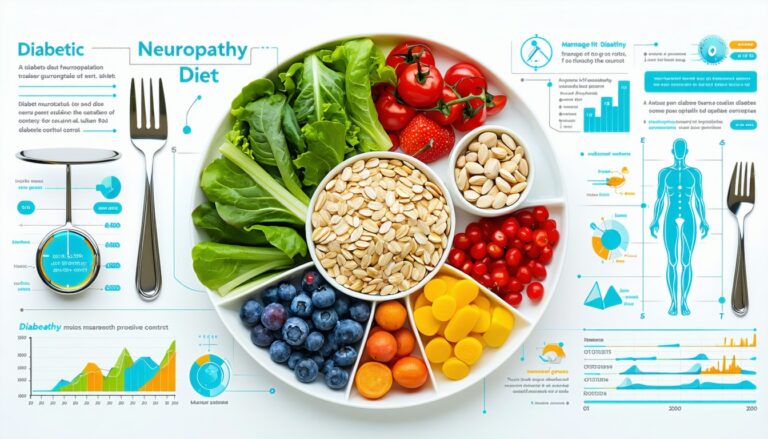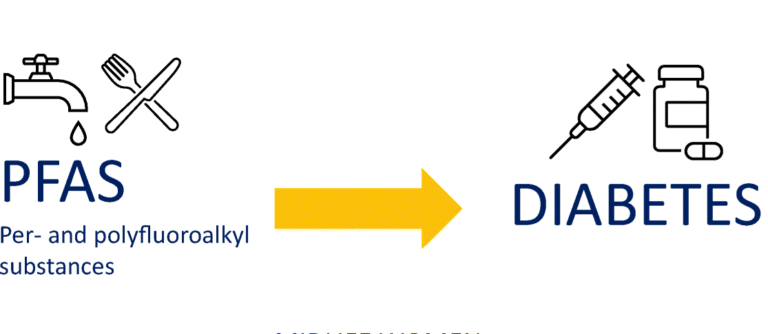Managing Alzheimers with Diabetes: A Comprehensive Guide
Discover effective strategies for managing Alzheimer’s with diabetes. Explore dietary adjustments, exercise, and prevention techniques.
Diabetes Link to Alzheimer’s Disease
Type 3 diabetes (T3D), sometimes dubbed “diabetes of the brain,” suggests a connection between wonky insulin signaling in your noggin’ and Alzheimer’s disease. Folks with type 2 diabetes are walking around with a whopping 56% greater risk—yep, a whole meta-analysis backs this up—of developing Alzheimer’s. And this isn’t just about genes like the APOE E4 getting all cheeky.
Research likes to point out that when insulin signaling goes off the rails, it messes with the brain’s energy mojo. It’s a potential culprit behind Alzheimer’s in folks tagged with T3D. Let those glucose levels run wild, and you’re in for some brain bioenergetics mayhem (PubMed Central).
Impact on Brain Function
Your brain’s a bit of a sugar fiend, snacking on glucose for its energy fix. With T3D in the equation, when insulin resistance shows up, glucose updates get interrupted, shortchanging brain functions. Issues like oxidative stress, busted mitochondria, and unwelcome inflammation sneak in, nudging cognitive powers downhill.
Type 3 diabetes often knocks around certain brain functions:
- Memory and Learning: Insulin’s kinda like brainfuel for memories and cognitive whizzes. Take away that insulin, and memory gears start grinding, with learning stumbling along.
- Neuroplasticity: Your brain’s superpower of adapting and rejigging itself? That’s neuroplasticity. Mess with insulin signaling, and suddenly the brain’s sense of creativity and change aren’t what they used to be.
- Synaptic Function: Insulin also keeps those neural chats (synaptic plasticity) lively. Mess with its pathways, and you’re waving goodbye to smooth brain interactions.
Managing Alzheimer’s along with diabetes means getting a handle on how insulin—or the lack thereof—shapes up brain health. With the global diabetes scene pegged at 9.3% in 2019 and climbing to a forecast of 10.9% by 2045, shining a light on these intertwining conditions is hitting the SOS button on the Alzheimer’s epidemic (PubMed Central).
If you’re tackling high blood sugar, tailor-made strategies come in handy, especially considering particulars like age and any extra baggage like health issues. This gets extra crucial when conditions like dementia are sitting at the table with older adults.
Getting a grip on how diabetes ties with brain health is key. Tuning into preventative steps and zeroing in on specific treatments can steer us away from stormy Alzheimer’s seas. Jump into more of our reads on insulin’s role in brain power or dive into the brain-protection benefits of insulin.
Managing Type 3 Diabetes and Alzheimer’s
Handling type 3 diabetes (T3D), often linked to Alzheimer’s, isn’t just a one-time fix—it’s about making clever tweaks to what you eat, understanding a bit about those fancy ketone supplements, and sticking to an exercise routine that makes you sweat in the right way.
Dietary Adjustments
Changing up your diet is a big part of taking on Alzheimer’s when diabetes tags along. Personalized meal plans, part of what’s called medical nutrition therapy, have proven to lower those tricky HbA1c numbers by 0.3–2.0% for folks dealing with type 2 diabetes. Ditching the high-carb stuff for meals that are low in carbs could help keep your blood sugar steady and sharpen the mind—a must if type 3 diabetes is on your radar.
| Food Choice | What It Does to Your Blood Sugar |
|---|---|
| Low-Carb Eating | Keeps those sugar levels from spiking |
| Lots of Fiber | Makes for happy, stable sugar readings |
| Good Fats (think avocados, nuts) | Boosts that noggin of yours |
| Lean Proteins | Keeps your sugar levels chilled |
Want to see just how your meal choices can twist the dance between Alzheimer’s and diabetes? Our deep dive on the matter might be worth checking out (Alzheimer’s prevention strategies).
Effects of Exogenous Ketones
Ketones—those little supplements grabbing headlines—might be key in managing blood sugar levels. Early studies hint that they could drop sugar levels by sparking more insulin activity early on. But keep in mind, the long-haul impact of these ketones on sugar is still hanging in the balance.
For those dealing with T3D, ketones don’t just shake up sugar levels—they’re like a power source for brain cells when glucose fails. Find out more about how they mix with insulin and brain health (here).
| Type of Ketone | What It Might Do |
|---|---|
| BHB (Beta-Hydroxybutyrate) | Think cut in those glucose levels |
| Ketone Esters | Extra juice for the brain cells |
| Ketone Salts | Could help protect that mental powerhouse |
Importance of Regular Exercise
Getting off the couch regularly makes a world of difference tackling type 3 diabetes. Exercise has been shown to cut down HbA1c by around 0.66% for those dancing with type 2 diabetes over 8 weeks. If T3D is part of your life, aim for at least 150 minutes of sweat-inducing, heart-pumping activity each week. Don’t forget—what works for you should fit with your age and what’s going on health-wise.
Workouts that count:
- Aerobics (like hopping onto a bike or some laps in the pool)
- Lifting Weights
- Stretching it out (hello, yoga!)
Breaking a sweat doesn’t just keep your sugar in check—it elevates brainpower and clears the mental fog.
By sticking to this game plan, folks managing type 3 diabetes might see life get a little bit easier and may hold back some of those Alzheimer’s symptoms from rushing in.
Preventative Measures for Alzheimer’s
Role of Precision Health
Precision health is like your personal health GPS, guiding you through a path that considers all your individual quirks. Think of it as your tailor-made route toward managing pesky issues like type 2 diabetes, while also keeping a sharp eye on squashing the risks of dementia.
By picking apart the mix of your genes, the environment you’re surrounded by, and your daily routine, precision health dishes out personalized advice for munching right, exercising good, and even the pills you pop. It’s like a health concierge service that aims at getting your blood sugar in check and making your body play nice with insulin, possibly keeping Alzheimer’s from crashing the party.
Therapeutic Approaches
When it comes to managing Alzheimer’s, the goal is upping insulin sensitivity. Think of sticky insulin resistance as a tiny mischief-maker leading to a traffic jam in your system, inundating insulin-degrading enzymes that typically keep both insulin and amyloid-beta protein in check. So, treatments that coax your body into making friends with insulin can be a win, especially in those early, vulnerable stages.
Research suggests that stocking up on things like antioxidants, polyphenols, and omega-3 fatty acids could give your brain a supportive nudge, maybe even steering you away from the grips of Alzheimer’s. Then there’s the gut-brain connection—treat your gut well, and it might just repay the favor upstairs in your brain. Get the full scoop on this topic by checking out our article about the neuroprotective effects of insulin.
Signaling Pathways Exploration
Peeling back the curtain on signaling pathways tied to type 3 diabetes and Alzheimer’s could be the golden ticket to better treatments. It’s all about those pesky insulin signals; if they’re off, it’s like sending your brain’s bioenergetics into a tailspin, leading Alzheimer’s to be dubbed “diabetes of the brain”.
Current research is zooming in on how to hit the right switches in these pathways to make insulin more of a buddy than a bully, slowing down the Alzheimer’s progression. This might mean throwing nutraceuticals into the mix, boosting antioxidant powers, or even tinkering with exciting new compounds that can tweak these pathways for the better.
For a deeper dive on dodging Alzheimer’s while keeping tabs on diabetes, our articles on Alzheimer’s prevention strategies and the Alzheimer’s and diabetes connection are waiting for you.
Precision health, a dose of smart therapeutic tactics, and a little pathway know-how could help folks keep Alzheimer’s at bay while managing diabetes, all leading to a healthier, more serene journey ahead.
Global Impact & Future Projections
Grasping the worldwide effect and what’s coming up for diabetes and Alzheimer’s helps us see the bigger picture when managing these health issues. With more people getting these conditions, nailing down good strategies to handle them is more important than ever.
Diabetes Prevalence Trends
Back in 2019, around 9.3% of the planet’s population, which is about 463 million folks, were grappling with diabetes. And it’s not slowing down—by 2030, it’s expected to hit 10.2% (that’s 578 million people), and by 2045, a whopping 10.9% or 700 million (PubMed Central). These numbers are like a siren call for smarter ways to tackle diabetes, especially since our healthcare systems are already feeling the heat.
| Year | Diabetes Rate Globally | People Affected (Million) |
|---|---|---|
| 2019 | 9.3% | 463 |
| 2030 | 10.2% | 578 |
| 2045 | 10.9% | 700 |
Rising Cases of Alzheimer’s
Alzheimer’s sits as the sixth top killer in the U.S., and despite some treatments offering symptom relief, there’s no cure in sight (International Journal of Molecular Sciences). Across the pond in the UK, about 850,000 folks live with dementia, mostly down to Alzheimer’s. Brace yourself, ’cause this is likely to zoom past 2 million by 2050.
When you mix rising diabetes numbers with Alzheimer’s cases, it’s a recipe for global health headaches. There’s even chatter about Alzheimer’s being “brain diabetes” or type 3 diabetes (T3DM), thanks to the connection with poor blood sugar control. For more on how these are linked, hit up our article on Alzheimer’s and diabetes connection.
Challenges in Management
Juggling Alzheimer’s and diabetes ain’t a walk in the park, and the growing cases of both are putting healthcare systems everywhere through the wringer. Turns out, letting your blood sugar run wild might heighten your Alzheimer’s risk, making good sugar control a must (Harvard Health Publishing).
Tackling this beast calls for several angles:
- Tweak Your Diet: Eating right to keep sugar in check and the brain ticking.
- Get Moving: Regular exercise boosts insulin’s mojo and sharpens brain power.
- Therapy Time: Dig into treatments aiming for the roots of type 3 diabetes and Alzheimer’s.
Looking for food tips and tricks? Peek at our piece on alzheimer’s prevention strategies.
Since how the body handles insulin affects the brain, fresh approaches like exogenous ketones and neuroprotective tricks matter a bunch. Dive into these in our reads on insulin and brain health and neuroprotective effects of insulin.
Sorting these issues means bringing different fields together—medical minds, nutrition experts, and lifestyle experts—to keep Alzheimer’s and diabetes in check.
Image Credit







Leave a Reply